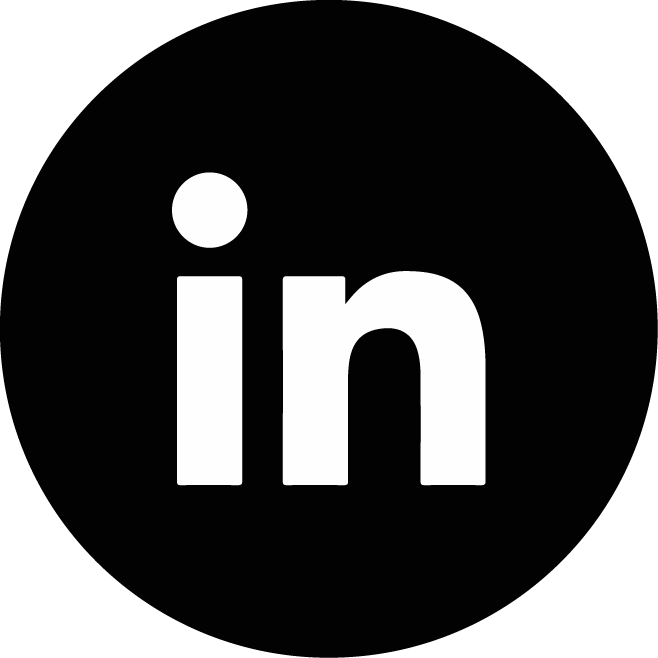 Barbara Jorgensen Taiwan start-ups have some digital healthcare technologies they’d like to bring to the United States. They have a few hurdles to clear first. For many foreign companies, unique technology isn’t enough to secure investors in America. The medical technology market is highly regulated, and venture capitalists remain very cautious about where they invest their money. Taiwan is actively involved in promoting and commercializing home-grown technology. “Taiwan has an established record for innovation in semiconductors and now we are targeting AI,” said Chun-Yi Tu, deputy director general for Taiwan’s Department of Academia-Industry Collaboration and Science Park Affairs. A late-September forum in Boston focused on developments “devoted to improving the well-being of patients.” The forum brought nine start-ups — Reliance Biosciences; FaceHeart; Aesop Technology; Heroic-Faith Medical Sciences; Summed Taiwan; AHEAD; RiCHE Biotech; Arvin Bio-Medical Research and MTAMTech Corp. — together with venture investors, technology developers and potential end-users. The companies have created solutions that advance the digital healthcare market through AI, data analytics, and materials or manufacturing break-throughs. The market for digital health is global and is expected to reach $509.2 billion by 2025, according to Grand View Research. Still, venture investors recommend start-ups focus on a single market as their technology gains traction. Emerging companies may over-reach, according to Geoff DaCosta, director for business development and licensing at Medtronic. “Digital health is global, but if you’ve had traction in China — by virtue of your location — you shouldn’t go after the U.S. at the same time. China is a unique market and that is a positive — it’s good to be in that market.” DaCosta was one of five venture experts that outlined the challenges of and options for breaking into the U.S. healthcare industry. For example, companies must be familiar with U.S. regulations governing medical technology. But first there are some very basic considerations. Distance is an issue for many potential investors, according to David Uffer, a partner at Alira Health. “Most venture funds are willing to invest anywhere, but start-ups really need the ability to meet face-to-face,” he said. “It’s hard to get funds because investors want to be there — sitting on boards, for example. Having a presence in the U.S. also helps.” Demand for digital health in North America is high due to a favorable environment, Grand View said. Europe is expected to hold the second position in the global market as more efforts are made to develop the healthcare industry in Europe. The companies pitching at the Boston tech forum are largely focused on contact-less devices, remote monitoring and diagnostics, or preventing errors. FaceHeart has developed technology that monitors heart rate and blood pressure through facial imaging. Its phone-based app allows patients to transmit data and to immediately seek help. Heroic-Faith Medical Science offers an AI-powered mobile solution that can monitor respiration. Arvin has created a wearable system that can identify and monitor heart attacks and transmit data as patients seek help. Availability of such apps in smartphones makes it easier for healthcare professionals to access patient information and diagnose diseases, according to Grand View. Furthermore, increased penetration of smartphones and internet connectivity are the key factors driving the digital healthcare market. Protect your IP Greg Sieczkiewicz, executive partner/chief IP counsel for MPM Capital, said IP protection is critical for start-ups as they seek funding and partnerships. “IP has a way of getting out while you are discussing your technology with potential partners,” he said. “Understand how your technology is being used and be ready to protect your IP.” Foreign start-ups are often ill-prepared to pitch to venture investors, said Luis Barros, managing partner of Leading Business Ventures. “Before you get here you have to do a lot of research at home,” he said. “Come ready to play in the big leagues.” Digital healthcare itself is a problematic market, investors said. “Business models in digital health are hard to figure out,” said Uffer, adding: “There’s a difference between wellness and healthcare, and there’s always a tug-of-war with insurance companies over who is going to pay for services.” Monetizing new tech remains a challenge, according to Sieczkiewicz. “I’d recommend figuring out who will pay for such products and services and then work backward from there.” AI in healthcare Al plays a leading role in diagnostics and error-prevention systems developed by Taiwanese start-ups. Reliance Biosciences has developed blood-based testing for cancer and Alzheimer’s. Aesop built an AI system that alerts doctors of inappropriate prescriptions. RiCHE converts data from samples — such as blood — to easily-read photothermal patterns, and AHEAD provides AI-assisted hematologic diagnostic and disease-assessment tools. Most of these companies are still in the process of gathering clinical data — a “must-have” for funding or partnership in the United States. The U.S. government itself invests in promising technology and offers other incentives such as R&D credits. Universities are major research centers, Barros pointed out, and start-ups could enlist faculty members as advocates for their technology. Connecting directly with a U.S. company is also a preferred route into the market. Venture investors view Taiwan as an established source of high-quality manufacturing and innovative technologies. Summed Taiwan offers vertically-integrated manufacturing services and MTAMTech has developed a hollow-fiber self-assembled substrate. Moreover, Uffer doesn’t see a cultural gap between Taiwan and the U.S. “What I see is an understanding of global markets,” he said. “But regulations and funding in the U.S. are difficult.” Reference: EE Times Asia Medical errors are the 3rd leading cause of death. One in four patients are harmed while receiving healthcare. Medication errors cost a lot and kill a lot. They are a costly but preventable problem. MedGuard, a system developed using 1.3 billion medical big data and artificial intelligence, helps to prevent medication errors. MedGuard delivers proactive protection and recommendations and has been tested in a live clinical trial at three teaching hospitals. Medical errors were the third leading cause of death after heart disease and cancer in 2013, and the eighth leading cause of death in 1999. Unsafe medication practices and medication errors are leading causes of injury and avoidable harm in health care systems around the world. According to a WHO report, the estimated annual cost associated with medication errors is US$42 billion. One in four patients are harmed while receiving healthcare. Prescription errors happen every two seconds. The World Health Organization launched a global effort to halve medication-related errors in 5 years, 51% of which are generated by prescription. Computerized physician order entry systems (CPOE) have been widely implemented in Taiwan and in most developed countries. A CPOE is the most critical and useful point to prevent medication errors. For example, diabetic patients should be prescribed Euglucon (to lower blood sugar) but Euclidan (to dilate blood vessels) was mistakenly prescribed more than 1,000 times in one hospital within one month; this error has potentially happened in other hospitals. In order to decrease medication errors or near misses, numerous hospitals have developed a rule-based function on CPOE to clinically support physicians when they submit prescriptions. However, there are limitations to its use. For example, there is a 50-90% override rate for alerts, and it is not cost-effective; in other words, it is entirely useless to physicians. Prof. Yu-Chuan Jack Li, the Dean of the College of Medical Science and Technology, Taipei Medical University, has dedicated himself to improving patient safety and quality for almost 30 years. He has started a Medical AI company, AESOP Technology, and has developed MedGuard, a system based on 1.3 billion medical big data and artificial intelligence (we call it appropriateness of prescription or AOP and have many publications in known journals), as an optimal solution for medication errors. It has been tested in a live clinical trial at three teaching hospitals. Besides direct cost results from errors, hospitals always suffer from punitive fees from the National Health Insurance Bureau (NHI), which is the single payer insurance agency in Taiwan, with an annual average of NT$5 million. For example, a young girl with a cervical problem was prescribed Filgrastim, which was defined as inappropriate by NHI, resulting in a NT$6.6 million fine for a regional hospital. With MedGuard, such errors can be reduced by highlighting inappropriate medication and potential missing diagnoses, and thus the quality of the medical records can be improved, or errors prevented and costs saved. Simulation based on real reminder analysis shows that MedGuard saves costs from NT$3-6 million on average per year by improvement of the quality of prescriptions. Taiwan has the highest ranked healthcare system and high quality infrastructure in the world. 100% electronic medical records brings Taiwan strength to export digital health technology. AESOP aims to utilize Taiwan’s strength in dealing with healthcare problems. As a pioneer of Al in Medicine, Prof. Yu-Chuan Jack Li believes that next-generation medical Al will be the optimal solution for patient safety and prevention ("Earlier Medicine"). About AESOP Technology AESOP Technology, a spin-off from Taipei Medical University, was founded by experts in medical informatics, physicians and pharmacists since 2019. Their mission is to increase patient safety and quality by bringing next-generation medical AI to prescriptions. Reference: Taiwan Research Highlight |
|
AESOP TECHNOLOGY
|
 |
© AESOP Technology 2024





